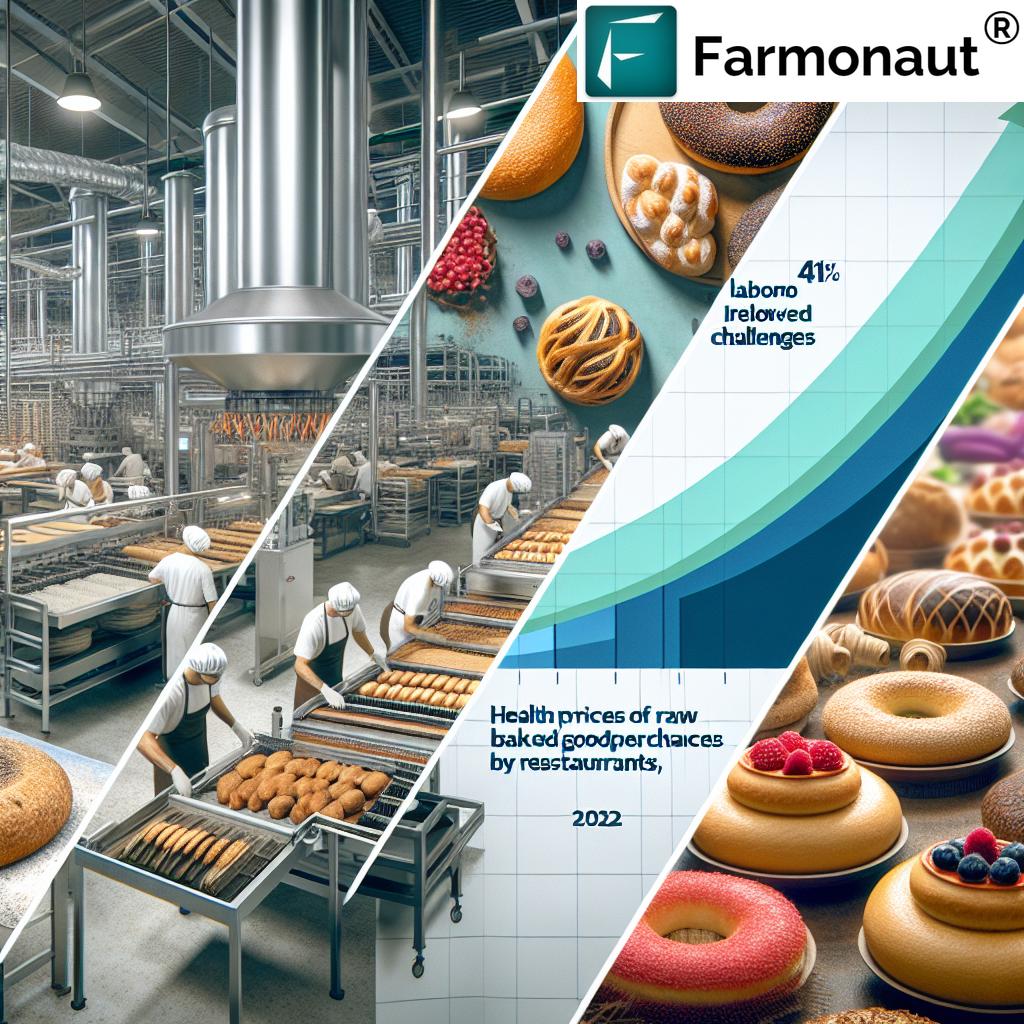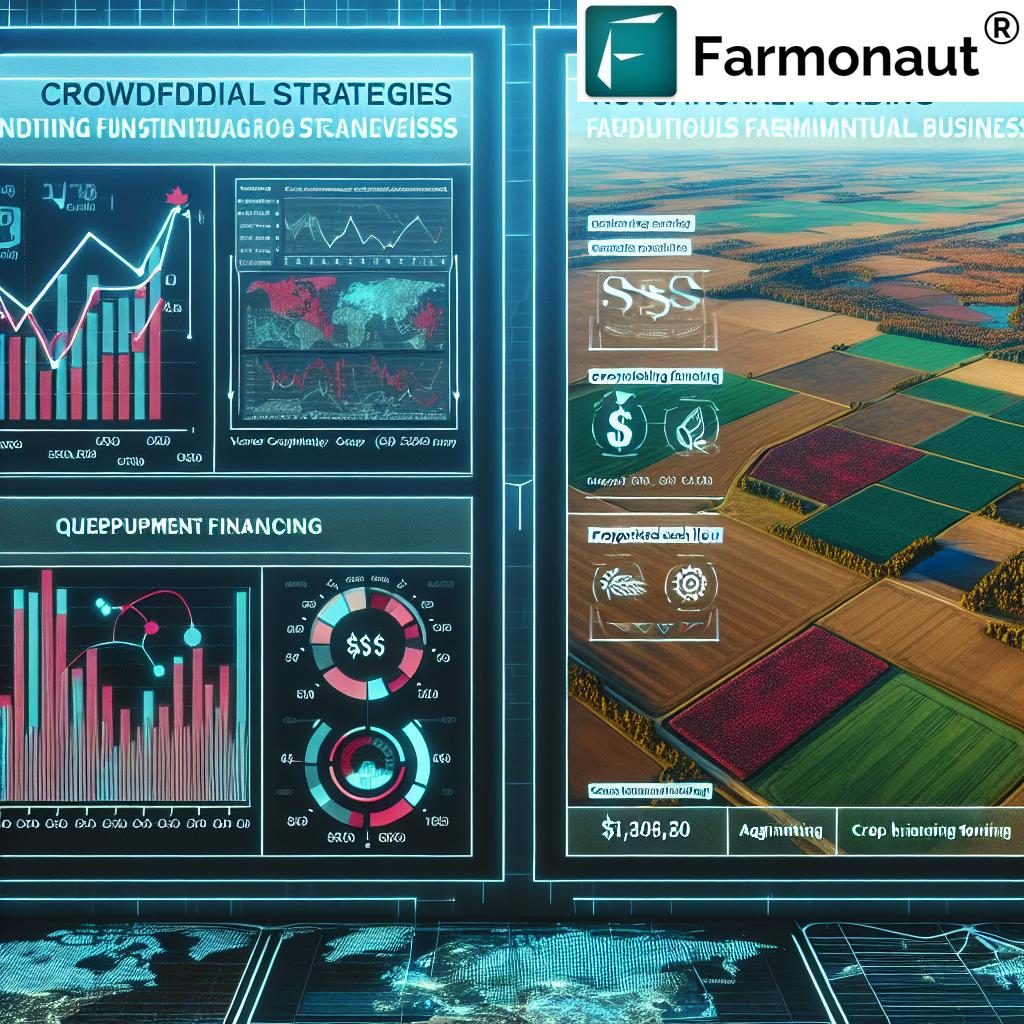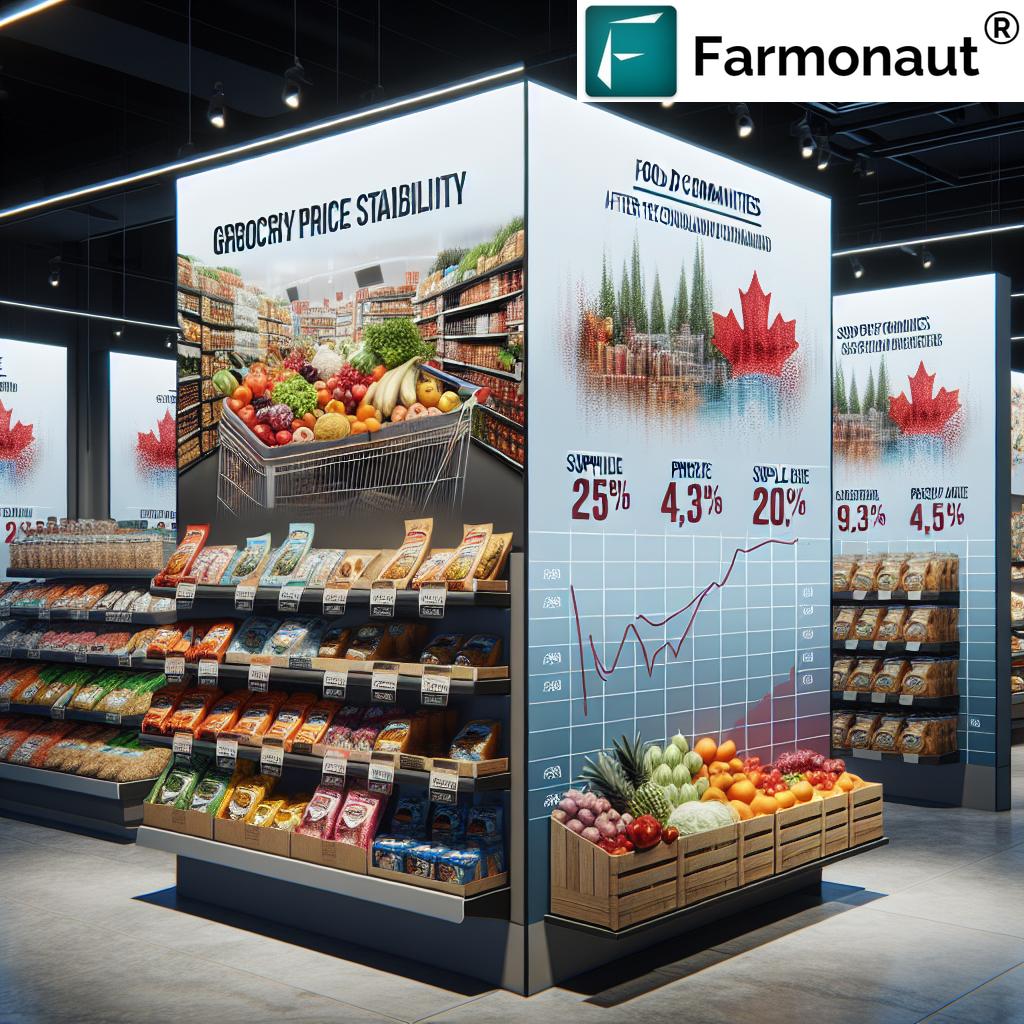2023 Canadian Bakery Industry Trends: Growth, Challenges, and Opportunities in Food Manufacturing
“Canadian bakery sales are projected to grow 5.4% in 2023, showing resilience despite inflation and rising costs.”

As we delve into the fascinating world of Canadian food manufacturing trends, particularly focusing on the bakery and tortilla industry, we find ourselves amidst a landscape of growth, challenges, and exciting opportunities. In this comprehensive analysis, we’ll explore the intricate dynamics shaping the sector in 2023 and beyond, offering valuable insights for industry professionals, investors, and enthusiasts alike.
The Rising Dough: An Overview of Industry Growth
The Canadian bakery industry is on a roll, with projections indicating a robust 5.4% increase in sales for 2023. This growth is particularly impressive considering the economic headwinds faced by many sectors. Let’s break down the factors contributing to this positive outlook:
- Strong Consumer Demand: Despite inflationary pressures, Canadians continue to show a hearty appetite for baked goods.
- Strategic Pricing: Bakeries have adeptly adjusted their pricing strategies to maintain profitability without significantly deterring customers.
- Foodservice Rebound: The restaurant industry’s recovery has been a significant boon for bakery sales.
Speaking of the foodservice sector, it’s worth noting a remarkable statistic:
“Restaurant purchases of baked goods surged 41% in 2022, significantly boosting the foodservice rebound in Canada.”
This surge underscores the symbiotic relationship between bakeries and the broader foodservice industry, highlighting the importance of diversified sales channels for bakery businesses.
Kneading Through Challenges: Industry Pressures
While the outlook is generally positive, the Canadian bakery industry isn’t without its challenges. Manufacturers are grappling with several pressing issues:
- Rising Raw Material Costs: The prices of key ingredients like flour, sugar, and eggs have seen significant increases.
- Labor Market Tightness: Skilled bakery workers are in high demand, driving up labor costs.
- Inflationary Pressures: Overall inflation is impacting operational costs across the board.
These factors are putting a squeeze on profit margins, forcing bakeries to innovate in both their products and operations to maintain profitability.
Fresh Opportunities: Emerging Trends
In the face of these challenges, the Canadian bakery industry is also seeing exciting new opportunities emerge. Our analysis at Farmonaut reveals several key trends:
- Health-Focused Products: There’s growing demand for healthier baked goods, including whole grain, low-sugar, and gluten-free options.
- Local Sourcing: Consumers are increasingly valuing products made with locally sourced ingredients.
- Artisanal and Specialty Items: Unique, high-quality baked goods are gaining traction in the market.
These trends offer bakeries opportunities to differentiate themselves and tap into new market segments.

Technology’s Role in Shaping the Future
As we navigate these industry trends, it’s crucial to recognize the transformative role of technology in the bakery sector. At Farmonaut, we’re at the forefront of this technological revolution in agriculture, which has significant implications for bakeries and food manufacturers.
Our satellite-based farm management solutions offer valuable insights into crop health and yield predictions for key bakery ingredients like wheat. This technology can help bakeries better anticipate supply chain fluctuations and make informed decisions about ingredient sourcing.
Explore how Farmonaut’s technology is revolutionizing agriculture:
For bakeries looking to leverage cutting-edge agricultural insights, consider exploring Farmonaut’s offerings:



Economic Trends Impacting the Bakery Sector
The Canadian bakery industry doesn’t operate in isolation. Broader economic trends play a significant role in shaping the sector’s trajectory. Let’s examine some key economic factors influencing the industry in 2023:
- Inflation: While challenging, moderate inflation can sometimes benefit bakeries by allowing for price increases.
- Exchange Rates: Fluctuations in the Canadian dollar can impact the cost of imported ingredients and equipment.
- Consumer Spending Patterns: Economic uncertainties may shift consumer preferences towards comfort foods, potentially benefiting bakeries.
Understanding these economic trends is crucial for bakeries to navigate the market effectively and make informed business decisions.
Consumer Preferences: The Key Ingredient
At the heart of the bakery industry’s growth are evolving consumer preferences. Our analysis reveals several key trends shaping consumer demand:
- Convenience: On-the-go options and ready-to-eat baked goods are gaining popularity.
- Authenticity: Consumers are seeking out traditional, artisanal baking methods and recipes.
- Transparency: There’s a growing demand for clear labeling and information about ingredient sourcing.
- Experimentation: Consumers are more open to trying new flavors and international baked goods.
Bakeries that can effectively cater to these preferences are likely to see stronger growth and customer loyalty.
The Role of Innovation in Driving Growth
Innovation is playing a crucial role in driving growth and addressing challenges in the Canadian bakery industry. From product development to operational efficiency, bakeries are finding creative ways to stay competitive:
- New Product Development: Bakeries are experimenting with unique flavors, textures, and ingredients to create standout products.
- Packaging Innovation: Sustainable and convenient packaging solutions are becoming increasingly important.
- Process Automation: Many bakeries are investing in automated equipment to improve efficiency and consistency.
- Digital Integration: Online ordering systems and digital marketing are helping bakeries reach new customers and streamline operations.
At Farmonaut, we recognize the importance of innovation in agriculture, which directly impacts the bakery supply chain. Our AI-driven advisory system, Jeevn AI, provides valuable insights that can help bakeries anticipate ingredient availability and quality:
Sustainability: A Rising Concern
Sustainability is becoming an increasingly important factor in the bakery industry. Consumers are more environmentally conscious, and this is reflected in their purchasing decisions. Bakeries are responding to this trend in several ways:
- Ingredient Sourcing: Many bakeries are prioritizing locally sourced and organic ingredients.
- Waste Reduction: Efforts to minimize food waste and implement recycling programs are becoming more common.
- Energy Efficiency: Bakeries are investing in energy-efficient equipment and processes to reduce their carbon footprint.
- Sustainable Packaging: There’s a growing shift towards eco-friendly packaging materials.
At Farmonaut, we’re committed to promoting sustainable agriculture practices. Our satellite-based crop health monitoring can help farmers optimize resource use, potentially leading to more sustainable ingredient sourcing for bakeries:
The Impact of E-commerce on Bakery Sales
The rise of e-commerce has had a significant impact on the bakery industry. While traditionally a brick-and-mortar business, many bakeries are now exploring online sales channels:
- Direct-to-Consumer Sales: Bakeries are setting up their own online stores for local delivery or pickup.
- Partnerships with Food Delivery Platforms: Collaborations with popular food delivery apps are expanding bakeries’ reach.
- Subscription Models: Some bakeries are offering subscription boxes for regular deliveries of baked goods.
- Social Media Marketing: Platforms like Instagram and Facebook are becoming key marketing tools for bakeries.
This shift towards digital sales channels presents both opportunities and challenges for bakeries, requiring new skills and strategies to succeed in the online marketplace.
Regional Variations in the Canadian Bakery Market
It’s important to note that the Canadian bakery market isn’t homogeneous. There are significant regional variations in consumer preferences, competitive landscapes, and economic conditions:
- Quebec: Known for its strong tradition of artisanal baking, with a particular emphasis on French-style pastries.
- Ontario: Home to a diverse, multicultural market with demand for a wide variety of international baked goods.
- Prairie Provinces: A strong market for traditional bread products, with growing interest in specialty and artisanal options.
- British Columbia: Trend-setting region with high demand for health-conscious and innovative baked goods.
Understanding these regional nuances is crucial for bakeries looking to expand or tailor their offerings to specific markets.
The Role of Government Policies and Regulations
Government policies and regulations play a significant role in shaping the Canadian bakery industry. Key areas of impact include:
- Food Safety Standards: Strict regulations ensure the safety and quality of baked goods.
- Labeling Requirements: Clear guidelines on ingredient lists, nutritional information, and allergen warnings.
- Trade Policies: International trade agreements can affect the cost and availability of certain ingredients.
- Environmental Regulations: Policies aimed at reducing waste and promoting sustainability in food manufacturing.
Staying informed about these regulations and adapting to changes is crucial for bakeries to maintain compliance and competitiveness.
Future Projections: What’s on the Horizon?
As we look towards the future of the Canadian bakery industry, several trends and projections emerge:
- Continued Growth: The industry is expected to maintain its growth trajectory, albeit with potential fluctuations.
- Increased Automation: More bakeries are likely to invest in automated processes to address labor challenges and improve efficiency.
- Focus on Plant-Based Options: The demand for vegan and plant-based baked goods is projected to grow.
- Personalization: Customized and made-to-order baked goods may become more prevalent.
- Integration of Technology: From AI-driven inventory management to blockchain for ingredient traceability, technology will play an increasingly important role.
At Farmonaut, we’re continuously developing our technology to support the agricultural sector, which in turn benefits industries like bakery manufacturing. Our satellite-based farm monitoring can help predict crop yields and quality, potentially aiding bakeries in ingredient sourcing decisions:
Key Industry Statistics and Projections
To provide a clear overview of the current state and future outlook of the Canadian bakery industry, we’ve compiled a table of key trends and projections:
| Trend/Metric | 2022 Data | 2023 Projection |
|---|---|---|
| Industry Sales Growth | 4.8% | 5.4% |
| Foodservice Bakery Purchases | 41% increase | Continued growth expected |
| Raw Material Costs | Significant increase | Moderate increase expected |
| Labor Costs | Rising | Continued upward pressure |
| Health-Focused Product Demand | Strong growth | Accelerated growth projected |
Strategies for Success in the Evolving Bakery Landscape
Given the complex and dynamic nature of the Canadian bakery industry, businesses need to adopt strategic approaches to thrive. Here are some key strategies for success:
- Diversification: Expanding product lines to cater to various consumer preferences and dietary needs.
- Investment in Technology: Adopting digital tools for operations, marketing, and customer engagement.
- Focus on Quality and Authenticity: Emphasizing high-quality ingredients and traditional baking methods to stand out in the market.
- Sustainability Initiatives: Implementing eco-friendly practices to appeal to environmentally conscious consumers.
- Continuous Innovation: Regularly introducing new products and flavors to keep customers engaged.
- Strategic Partnerships: Collaborating with local farmers, food service providers, and other businesses to strengthen the supply chain and expand reach.
By implementing these strategies, bakeries can position themselves for growth and resilience in the face of industry challenges.
The Role of Data in Bakery Management
In today’s data-driven world, leveraging information for decision-making is crucial, even in traditional industries like baking. Here’s how data can benefit bakery operations:
- Inventory Management: Predictive analytics can help optimize stock levels and reduce waste.
- Customer Insights: Data on purchasing patterns can inform product development and marketing strategies.
- Operational Efficiency: Analytics can identify bottlenecks in production processes.
- Supply Chain Optimization: Data-driven insights can improve ingredient sourcing and logistics.
At Farmonaut, we understand the importance of data in agriculture and food production. Our satellite-based monitoring and AI-driven insights can provide valuable data on crop health and yield predictions, which can be crucial for bakeries in planning their ingredient sourcing:
For developers interested in integrating agricultural data into their systems, explore our API:
Conclusion: Rising to the Occasion
The Canadian bakery industry in 2023 presents a landscape of both challenges and opportunities. With projected sales growth of 5.4%, the sector demonstrates resilience in the face of economic pressures. The surge in foodservice bakery purchases, rising 41% in 2022, highlights the industry’s ability to adapt and thrive in changing market conditions.
Key trends shaping the industry include the growing demand for health-focused products, the importance of local sourcing, and the increasing role of technology in both production and marketing. While challenges such as rising raw material and labor costs persist, innovative strategies and a focus on consumer preferences can help bakeries navigate these hurdles successfully.
As we look to the future, the Canadian bakery industry stands poised for continued growth and evolution. By embracing innovation, prioritizing sustainability, and leveraging data-driven insights, bakeries can position themselves for success in this dynamic and flavorful sector.
FAQ Section
Q: What is the projected growth rate for the Canadian bakery industry in 2023?
A: The Canadian bakery industry is projected to grow by 5.4% in 2023.
Q: How did foodservice bakery purchases change in 2022?
A: Foodservice bakery purchases surged by 41% in 2022.
Q: What are some key challenges facing the bakery industry?
A: Key challenges include rising raw material costs, labor market tightness, and inflationary pressures.
Q: What trends are shaping consumer demand in the bakery sector?
A: Major trends include demand for health-focused products, local sourcing, artisanal items, and convenience options.
Q: How is technology impacting the bakery industry?
A: Technology is playing a crucial role in areas such as process automation, online sales, digital marketing, and supply chain management.
















